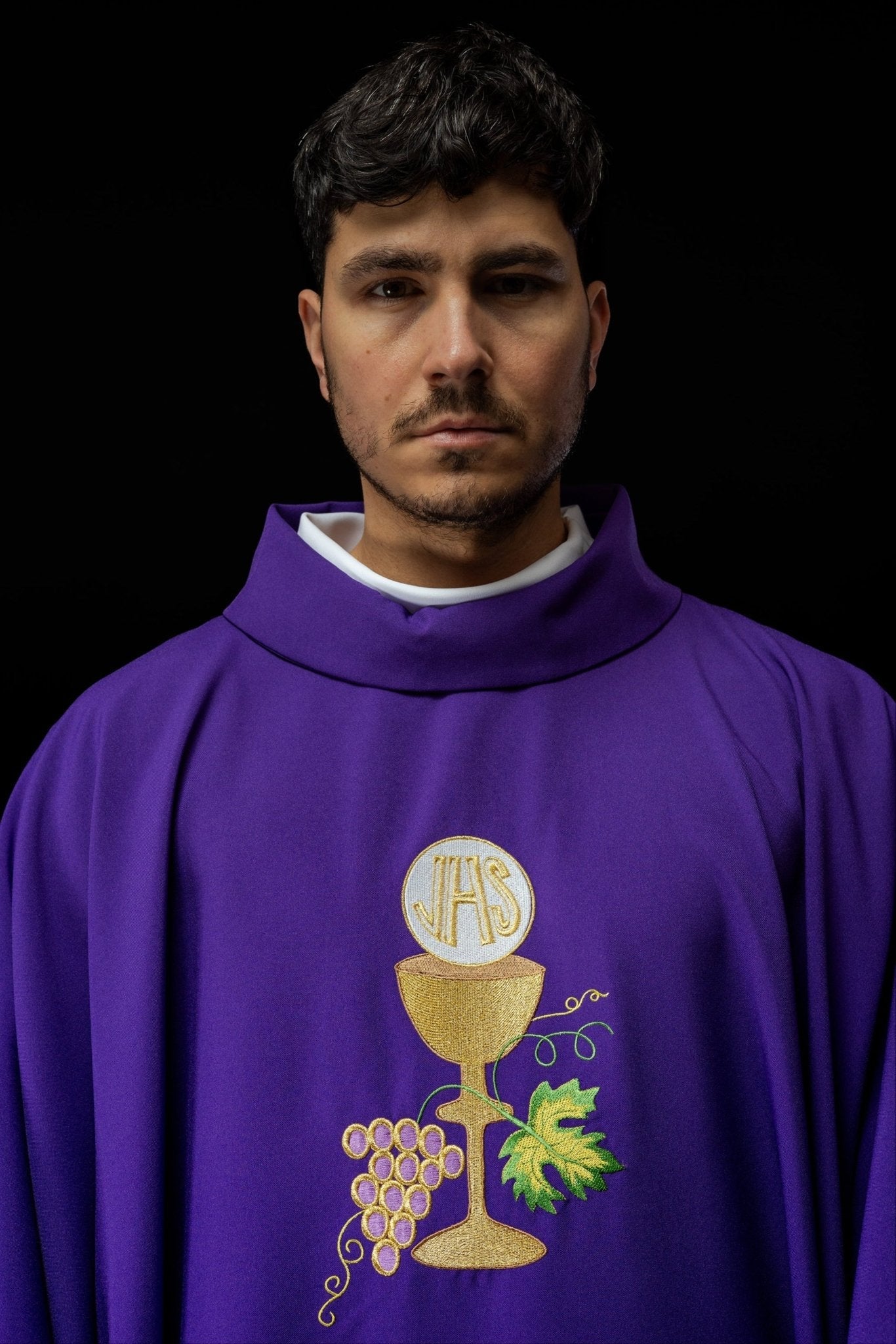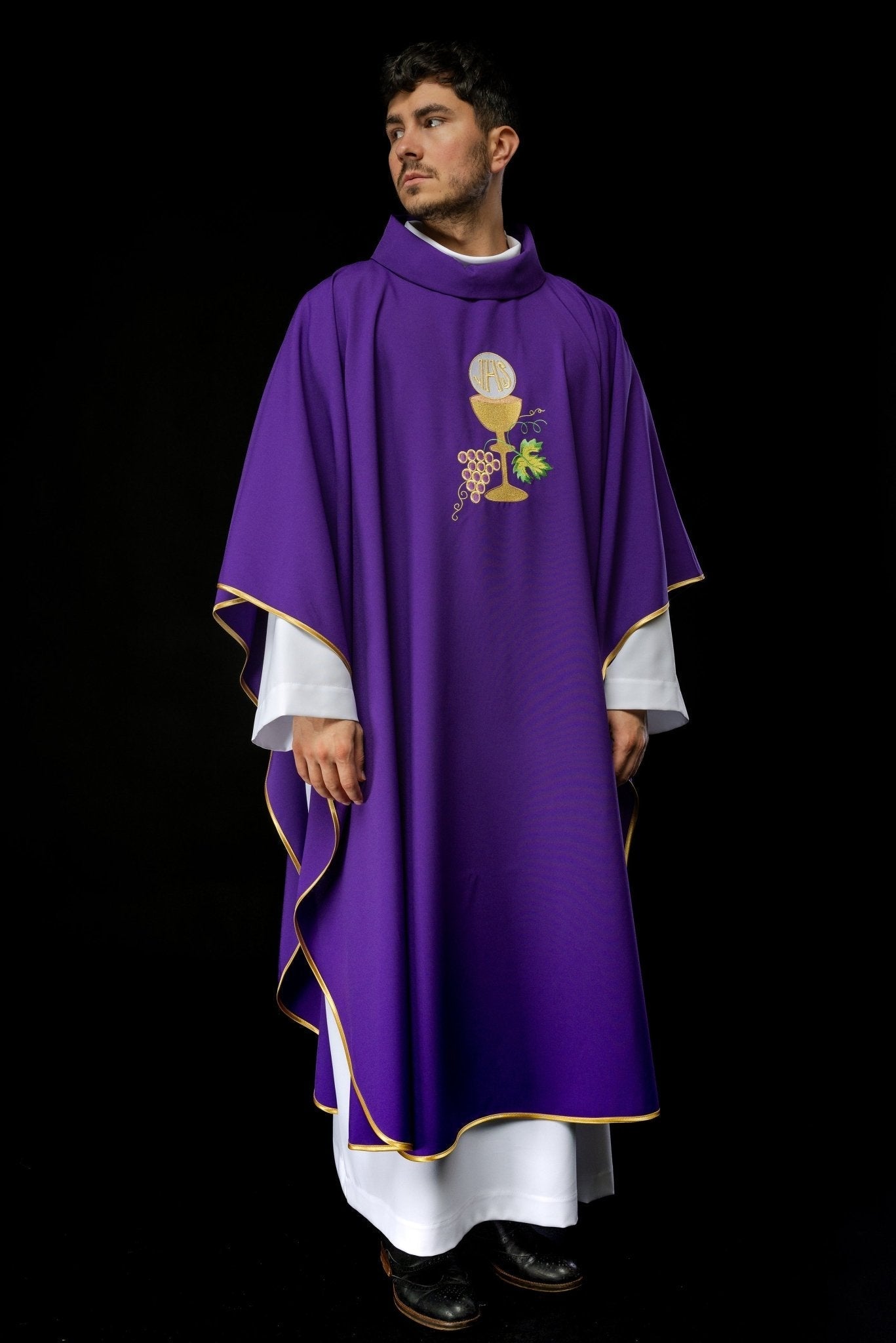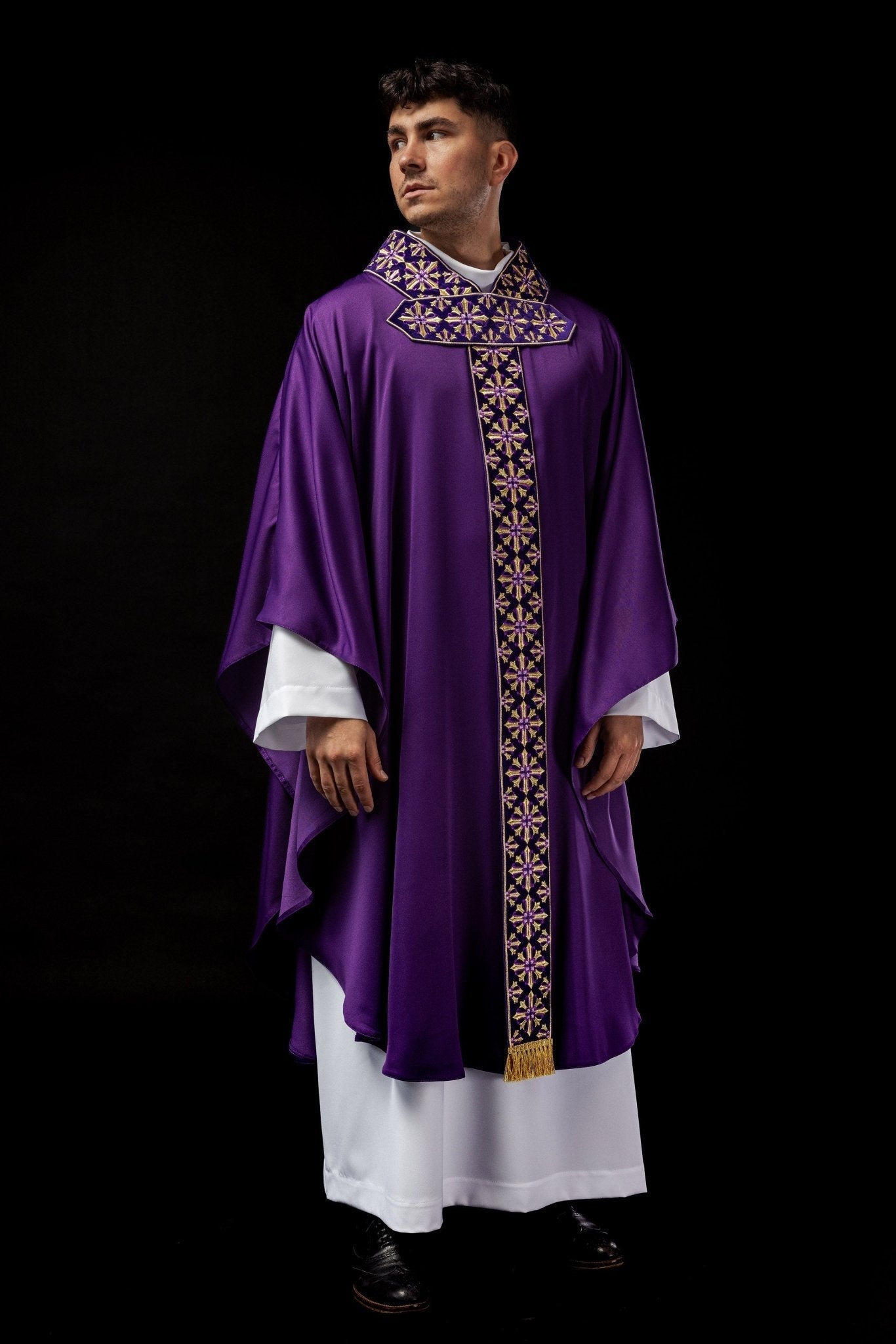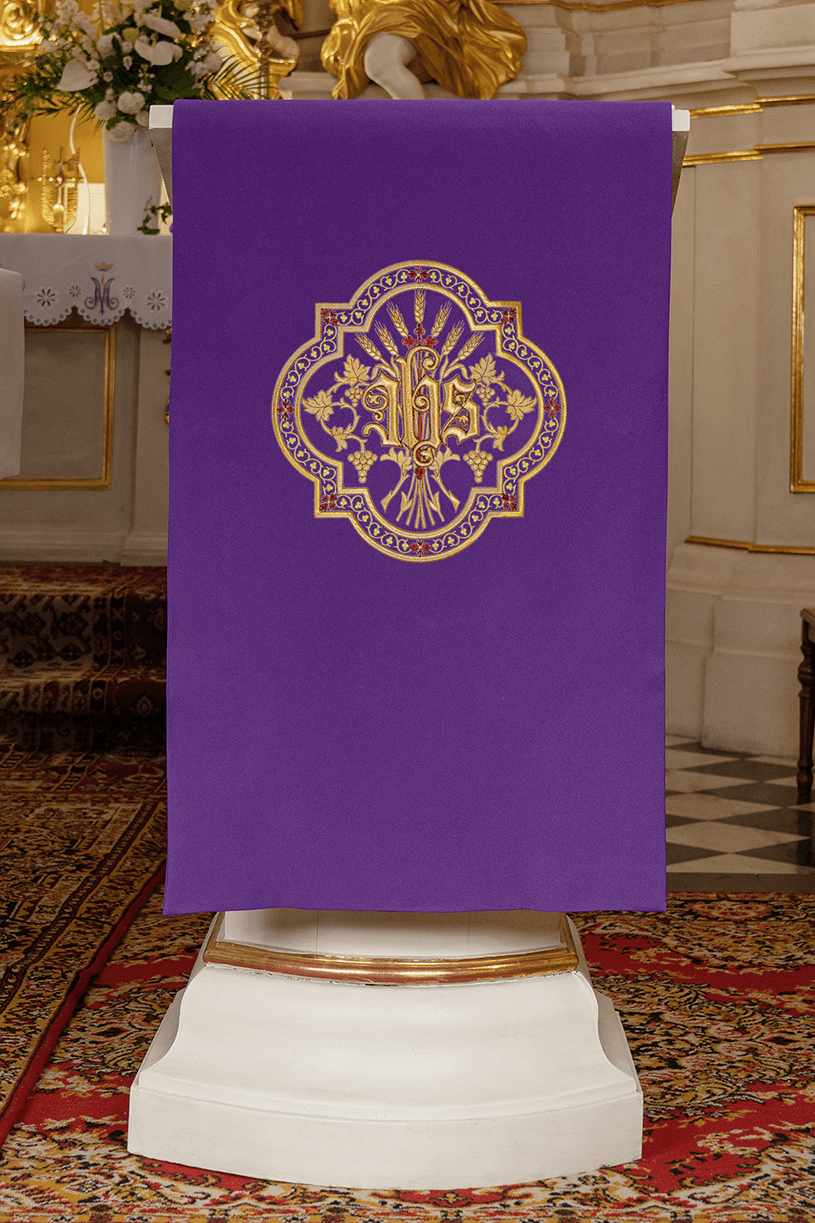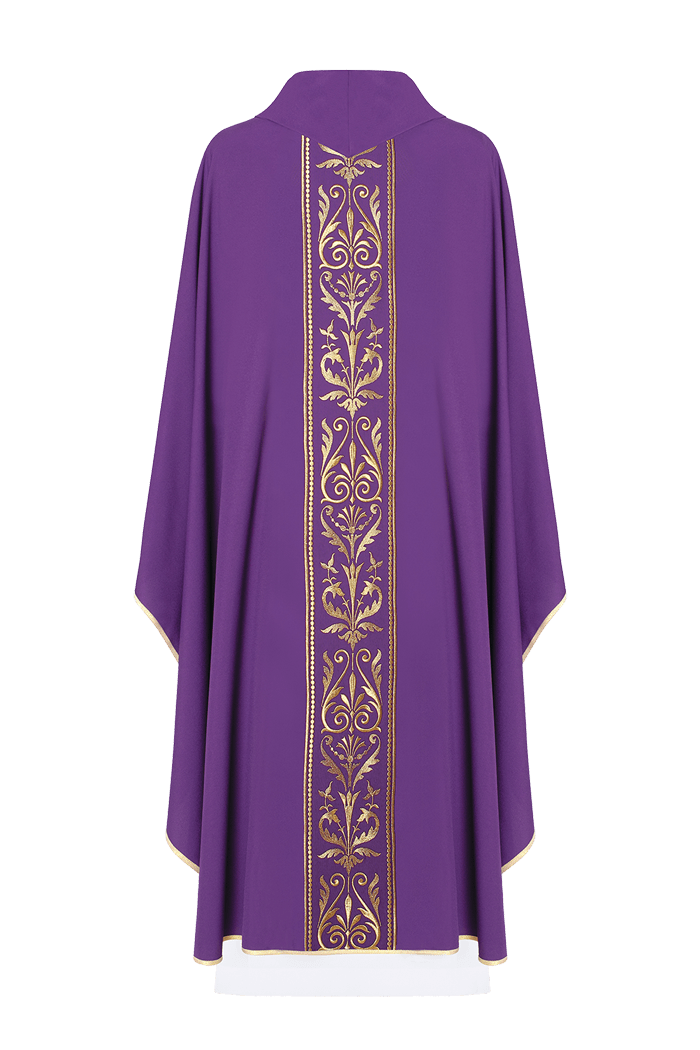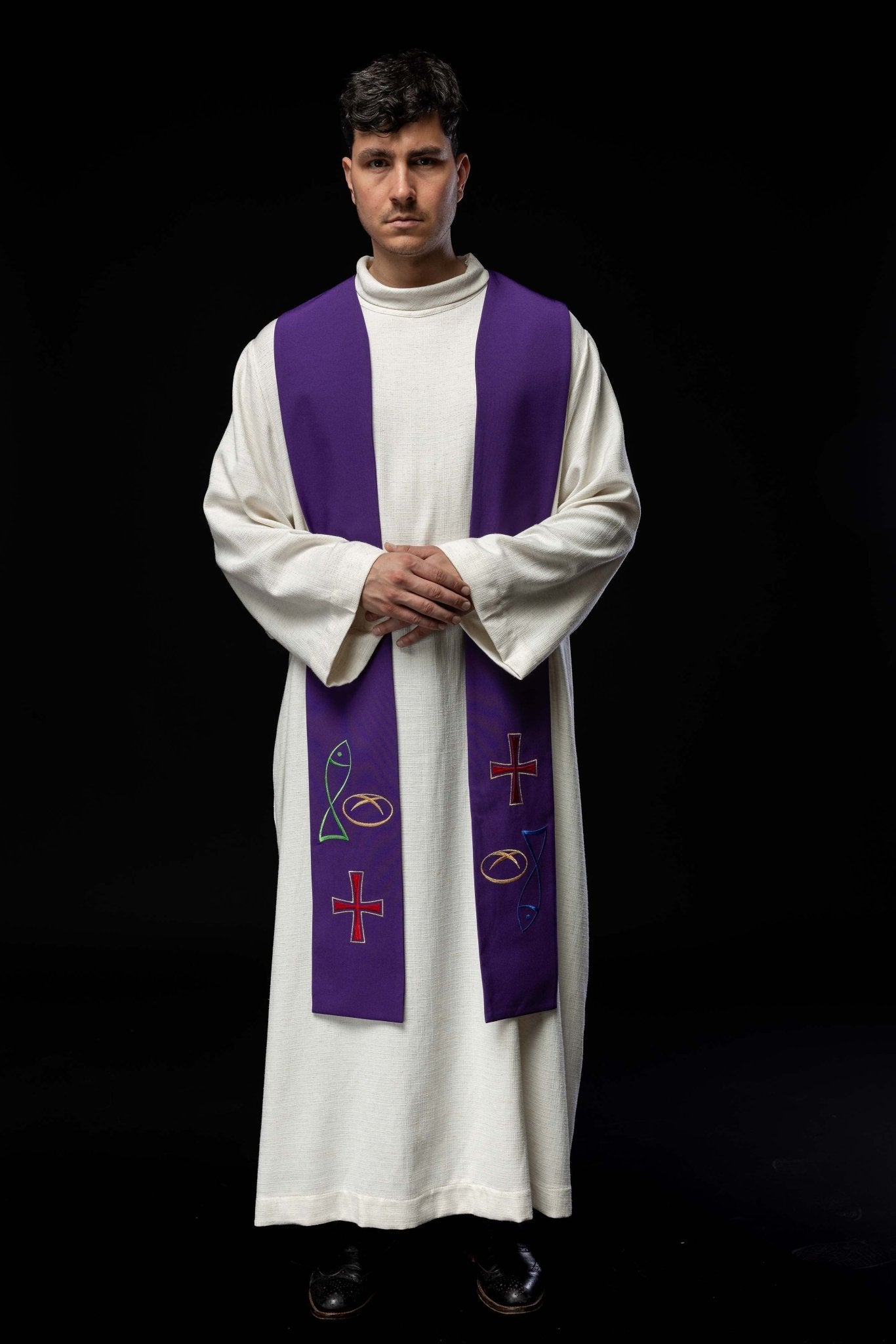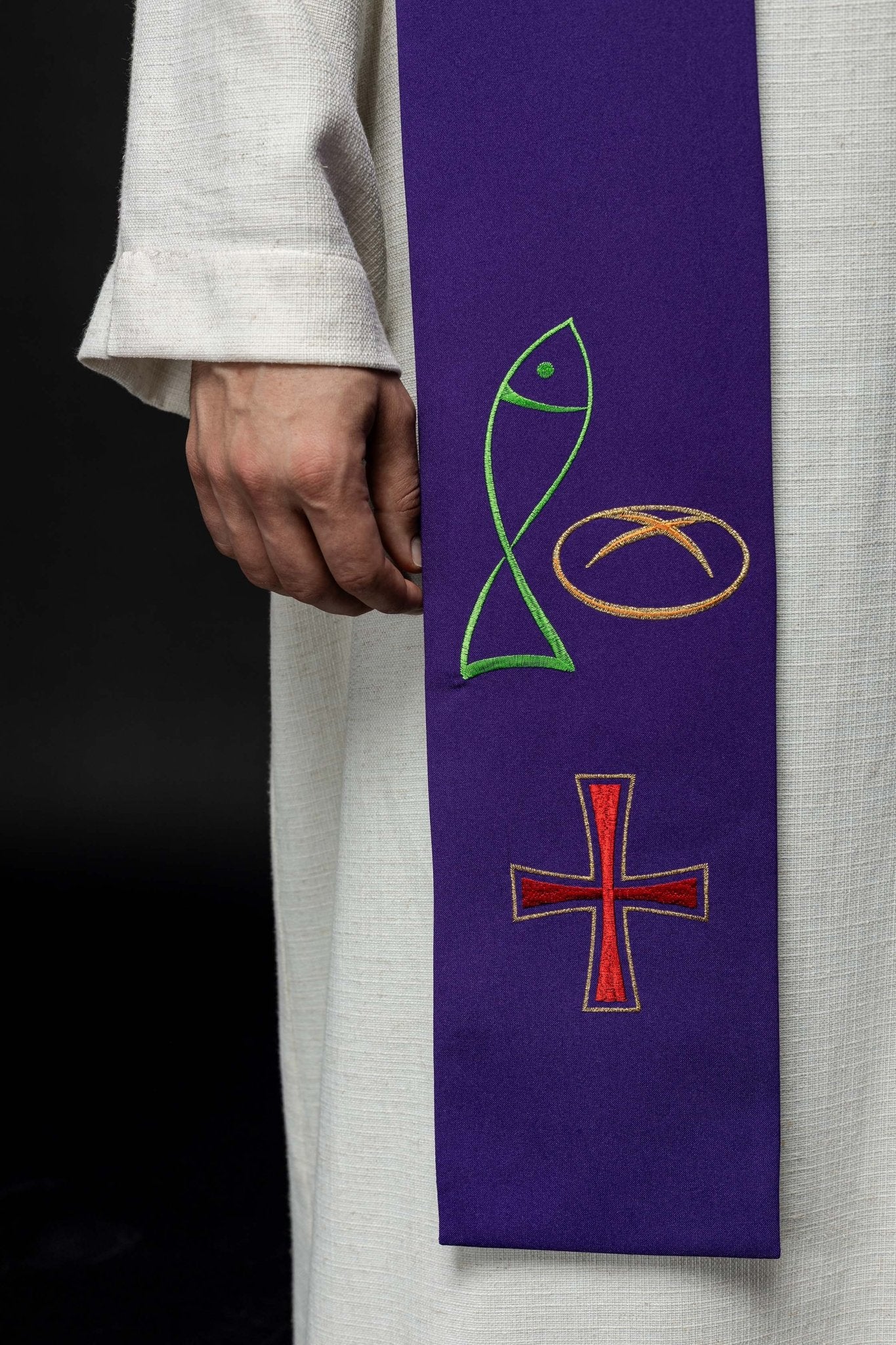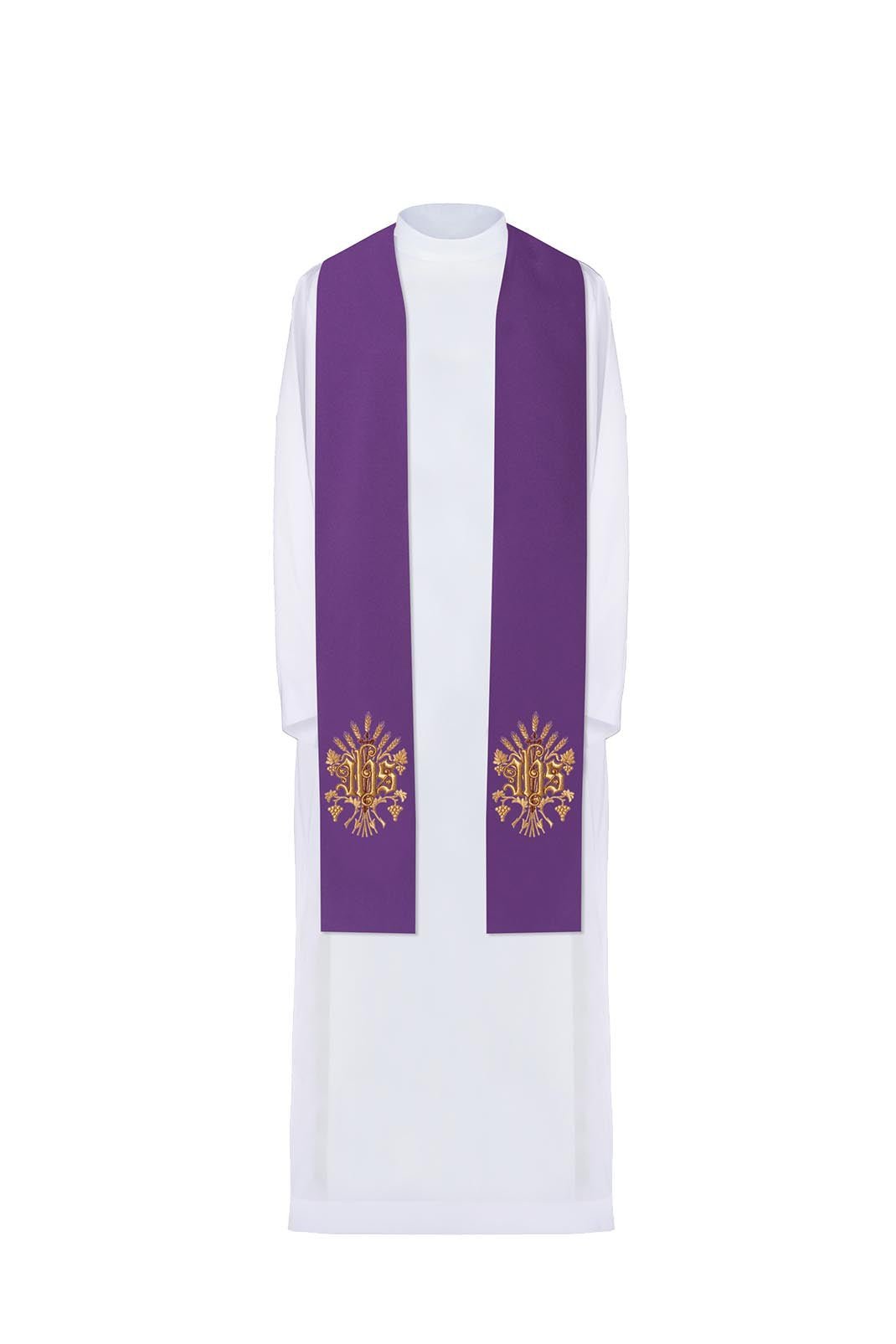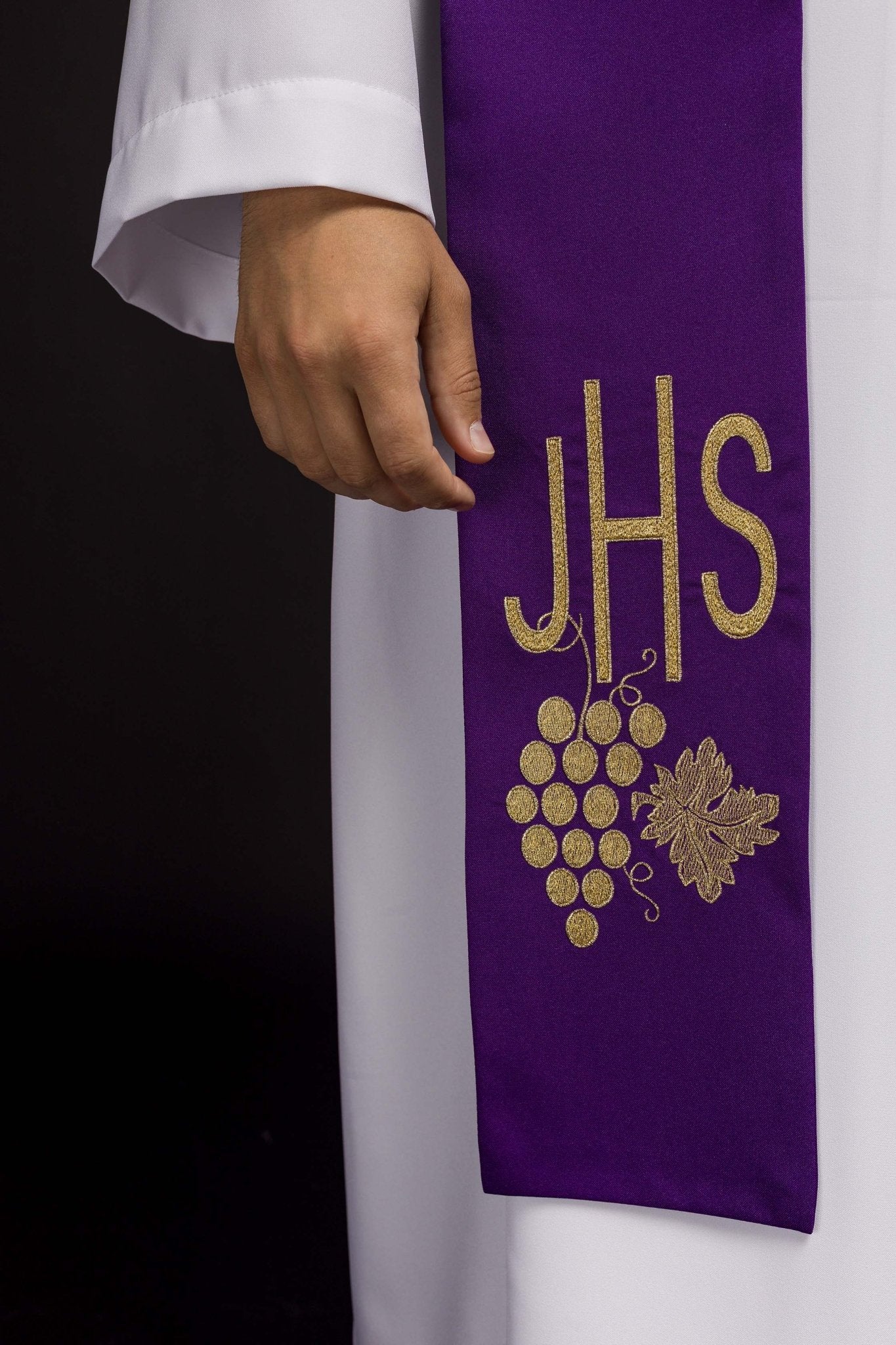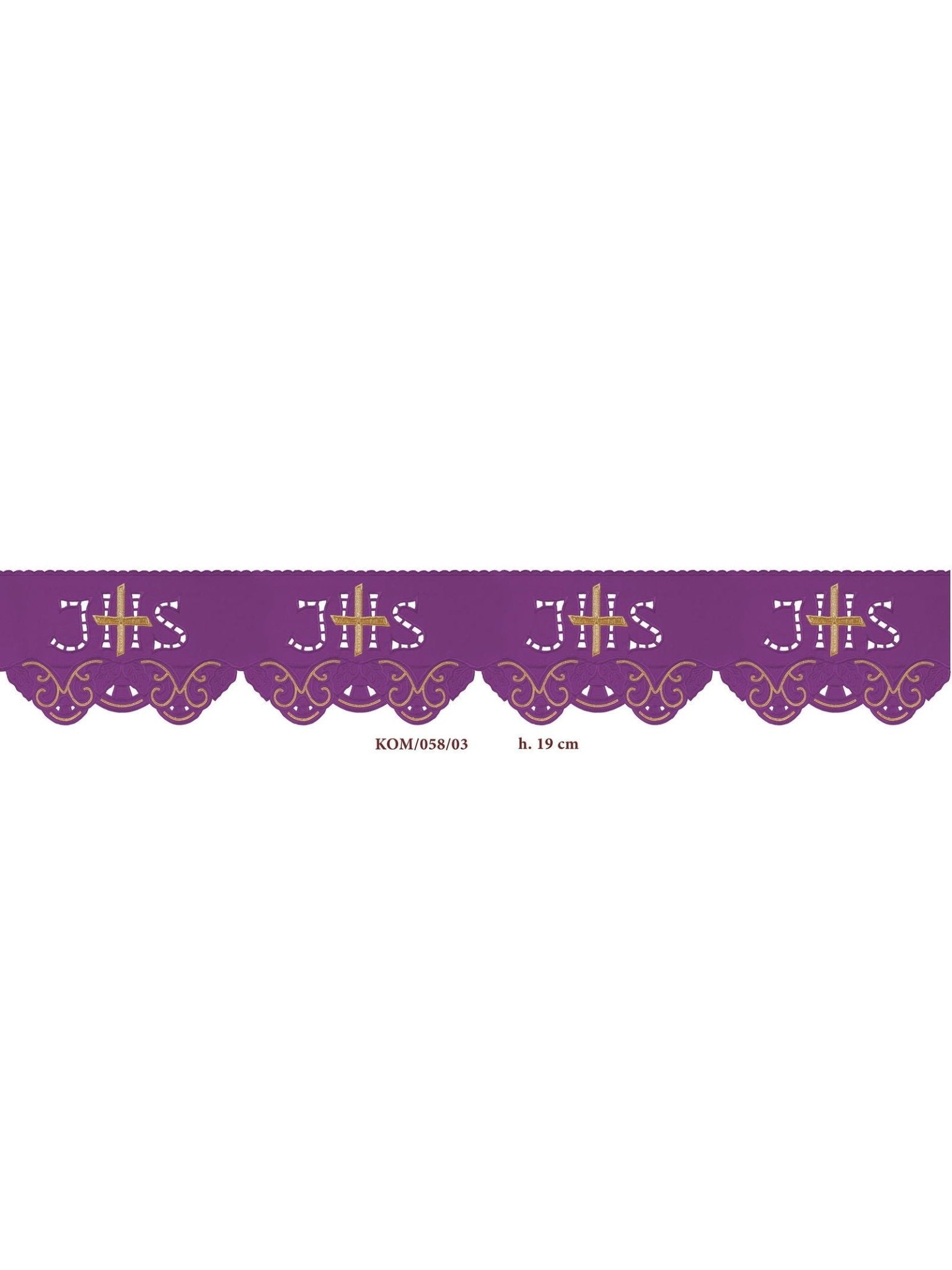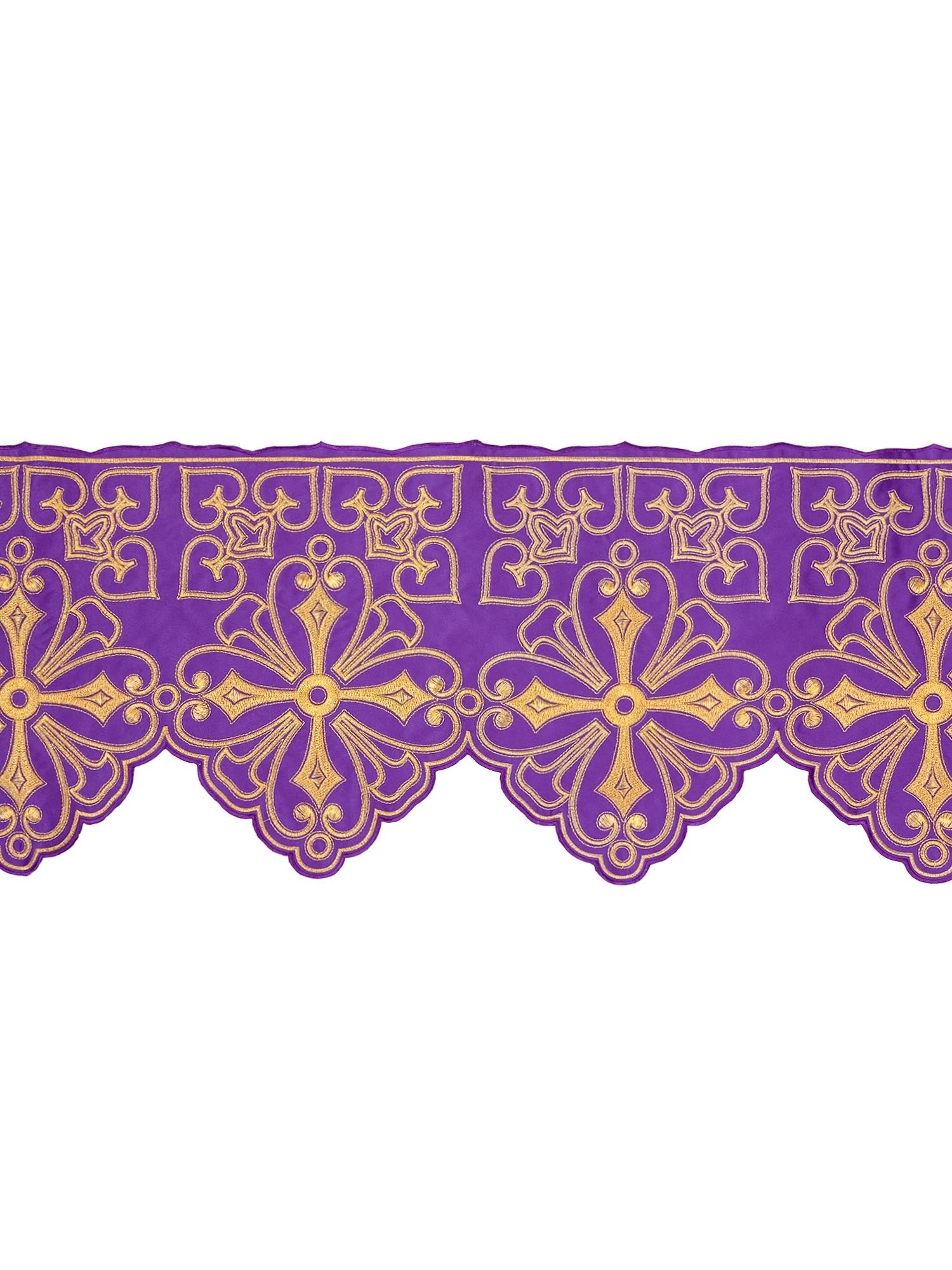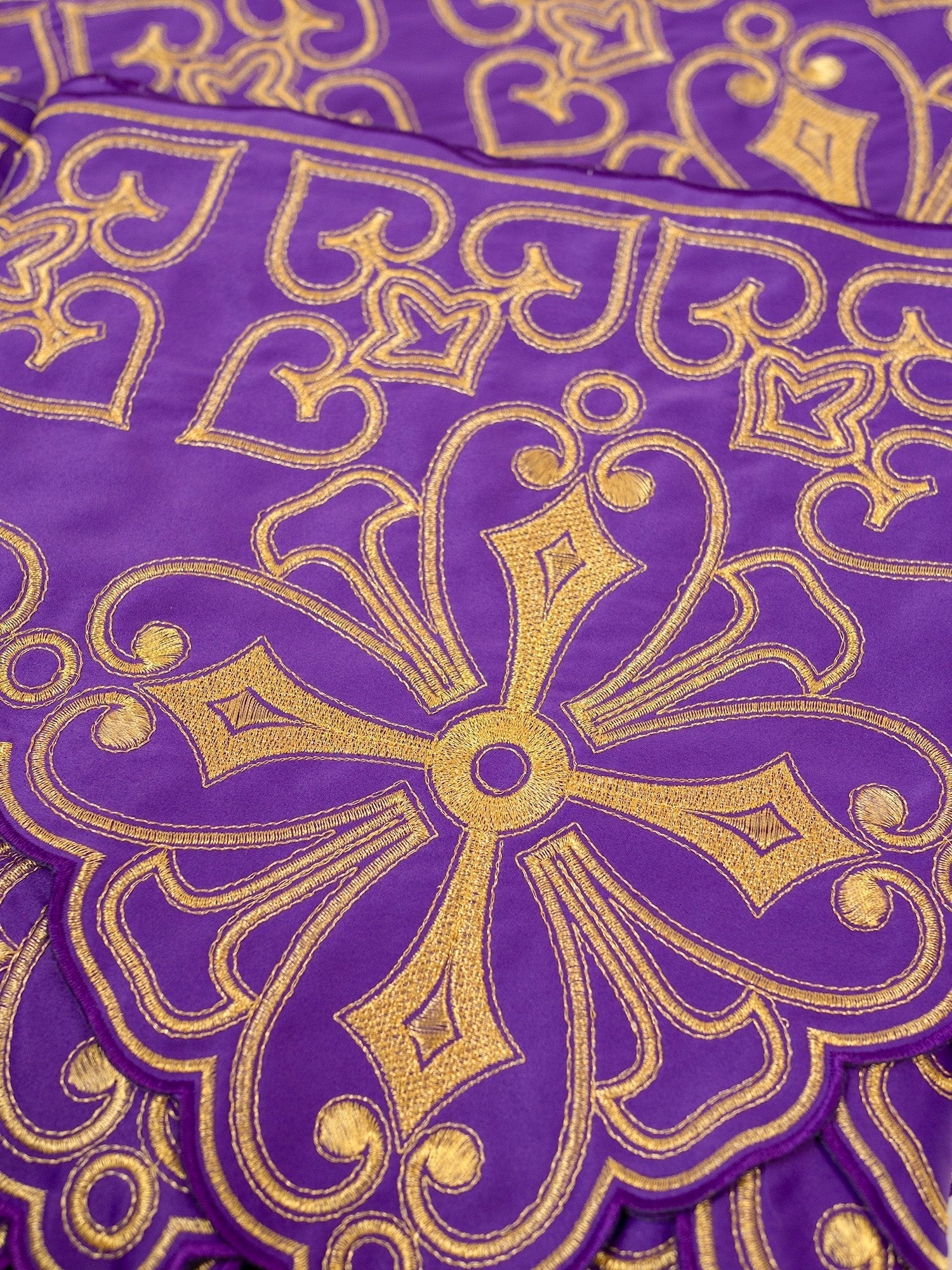Advent Vestments: A Season of Hope and Preparation
The Meaning and Significance of Advent
Advent, derived from the Latin word adventus meaning coming, is a season observed in many Christian churches as a time of expectant waiting and preparation for the celebration of the Nativity of Jesus at Christmas. It is the beginning of the Western liturgical year and commences on the fourth Sunday before Christmas, lasting until Christmas Eve. Advent is far more than simply marking the weeks before Christmas it's a period of spiritual preparation, reflection, and anticipation.
The primary focus of Advent is to prepare believers for the coming of Christ, not just as a historical event but also in the present and future. This threefold coming is central to Advent theology:
-
The Incarnation: Celebrating the birth of Jesus in Bethlehem.
-
The Present Coming: Recognizing Christ's presence in our lives through the Holy Spirit and the sacraments.
-
The Final Coming: Looking forward to Christ's return in glory at the end of time.
During Advent, Christians are encouraged to engage in practices such as prayer, fasting, and acts of charity. These disciplines help to purify the heart and mind, making them more receptive to God's grace. It's a time to reflect on one's spiritual life, repent of sins, and seek reconciliation with God and others.
Liturgical Colors and Their Symbolism in Advent
Colors play a crucial role in the liturgical life of the Church, and Advent is no exception. The colors used during Advent help to convey the themes and mood of the season. Understanding these colors can deepen one's appreciation for the liturgical celebrations.
Purple or Violet:
The most common color associated with Advent is purple or violet. This color symbolizes:
-
Penitence: Reflecting on sins and the need for repentance.
-
Preparation: Preparing the heart and mind for the coming of Christ.
-
Royalty: Acknowledging Christ as the King of Kings.
Purple is used for vestments, altar cloths, and other liturgical decorations during most of the Advent season. It serves as a visual reminder of the need for spiritual introspection and renewal.
Rose or Pink:
On the Third Sunday of Advent, also known as Gaudete Sunday, the liturgical color shifts to rose or pink. This color symbolizes:
-
Joy: A break from the penitential mood, signifying that the coming of Christ is near.
-
Anticipation: Heightening the sense of expectation and excitement.
The use of rose on Gaudete Sunday provides a moment of hope and encouragement amidst the somber reflection of Advent. It reminds believers that the joy of Christmas is drawing closer.
White and Gold:
While not typically associated with the Advent season itself, white and gold may be used on solemnities that fall during Advent, such as the Feast of the Immaculate Conception (December 8). These colors symbolize:
-
Purity: Representing the sinlessness of Mary.
-
Celebration: Marking a significant event in the liturgical calendar.
Advent Vestments: Styles and Designs
Advent vestments are the liturgical garments worn by clergy during the Advent season. These vestments are not merely decorative they serve a functional and symbolic purpose, enhancing the solemnity and significance of the liturgical celebrations. The design and style of Advent vestments can vary, but they generally reflect the themes of preparation, penitence, and anticipation.
Traditional Styles:
Traditional Advent vestments often feature simple designs with minimal ornamentation. The focus is on the liturgical color and the overall message of the season. Some common styles include:
-
Gothic Chasubles: A flowing, ample chasuble that drapes gracefully over the priest's shoulders.
-
Roman Fiddleback Chasubles: A more structured chasuble with a distinctive fiddleback shape.
-
Dalmatics: A wide-sleeved tunic worn by deacons, typically made of rich fabrics.
Modern Interpretations:
Modern Advent vestments may incorporate contemporary designs and fabrics while still adhering to the liturgical guidelines. These vestments often feature:
-
Abstract Patterns: Geometric or organic patterns that symbolize the themes of Advent.
-
Symbolic Imagery: Images of the Advent wreath, the Star of Bethlehem, or other relevant symbols.
-
Unique Fabrics: Innovative materials that add texture and visual interest.
Embroidery and Appliqué:
Embroidery and appliqué are common techniques used to embellish Advent vestments. These embellishments can add depth and meaning to the vestments, highlighting important symbols and themes. Some examples include:
-
Advent Wreath: Embroidered or appliquéd images of the Advent wreath with its candles.
-
Scriptural Verses: Embroidered verses from the Bible that relate to the Advent season.
-
Marian Symbols: Symbols associated with the Virgin Mary, such as lilies or stars.
Fabrics Used in Advent Vestments
The choice of fabric for Advent vestments is important, as it contributes to the overall look and feel of the garments. The fabric should be durable, comfortable, and appropriate for liturgical use. Some common fabrics used in Advent vestments include:
-
Wool: A natural fiber that is warm, durable, and drapes well.
-
Linen: A lightweight, breathable fabric that is often used in warmer climates.
-
Silk: A luxurious fabric that adds elegance and sheen to vestments.
-
Polyester Blends: A practical and affordable option that is easy to care for.
The fabric may be plain or textured, depending on the desired effect. Some vestments feature intricate brocades or damasks, while others are made of simple, unadorned fabrics.
Caring for Advent Vestments
Proper care is essential to maintain the beauty and longevity of Advent vestments. Following these guidelines will help to ensure that the vestments remain in good condition for years to come:
-
Storage: Store vestments in a dry, clean place, away from direct sunlight.
-
Cleaning: Follow the manufacturer's instructions for cleaning. Some vestments may require professional dry cleaning.
-
Ironing: Iron vestments on a low setting, using a pressing cloth to protect the fabric.
-
Repairs: Repair any tears or loose seams promptly to prevent further damage.
By taking good care of Advent vestments, you can help to preserve the beauty and dignity of the liturgical celebrations.
The Advent Wreath: A Symbol of Hope
One of the most recognizable symbols of Advent is the Advent wreath. This wreath, typically made of evergreen branches, holds four candles, each representing a different aspect of the Advent season. The candles are lit each Sunday of Advent, adding to the anticipation of Christmas.
The Candles:
Each candle on the Advent wreath has a specific meaning:
-
First Candle (Purple): Hope – symbolizing the hope for the coming of the Messiah.
-
Second Candle (Purple): Peace – representing the peace that Christ brings to the world.
-
Third Candle (Rose): Joy – signifying the joy of the approaching Nativity (Gaudete Sunday).
-
Fourth Candle (Purple): Love – symbolizing God's love for humanity, manifested in the birth of Jesus.
-
Optional Fifth Candle (White): Christ – placed in the center of the wreath and lit on Christmas Eve or Christmas Day, representing the presence of Christ.
The Wreath's Components:
The Advent wreath itself is also rich in symbolism:
-
Evergreen Branches: Representing eternal life.
-
Circular Shape: Symbolizing God's unending love and the eternal nature of Christ.
The Advent wreath serves as a focal point for prayer and reflection during the Advent season. It reminds believers of the true meaning of Christmas and the importance of preparing their hearts for the coming of Christ.
Advent Music and Hymns
Music plays a significant role in the Advent season, helping to create an atmosphere of anticipation and reverence. Many beautiful hymns and carols are sung during Advent, reflecting the themes of hope, peace, joy, and love. These musical selections can deepen one's spiritual experience and enhance the liturgical celebrations.
Traditional Hymns:
Some popular traditional Advent hymns include:
-
O Come, O Come, Emmanuel: A classic hymn that expresses the longing for the coming of the Messiah.
-
Lo, He Comes with Clouds Descending: A powerful hymn that proclaims the second coming of Christ.
-
Hark! A Thrilling Voice Is Sounding: A hymn that calls believers to prepare for the coming of the Lord.
Contemporary Songs:
In addition to traditional hymns, many contemporary songs are also sung during Advent. These songs often focus on the themes of hope, peace, and the anticipation of Christmas.
The Importance of Music:
Music has the power to uplift the spirit and draw people closer to God. During Advent, music can help to create a sense of community and shared anticipation. It can also serve as a reminder of the true meaning of Christmas and the importance of preparing our hearts for the coming of Christ.
Advent Readings and Scripture
The Bible is central to the Advent season, providing the foundation for reflection and prayer. Specific readings are assigned for each Sunday of Advent, focusing on the themes of hope, preparation, and the coming of Christ. These readings help believers to understand the significance of Advent and to prepare their hearts for the celebration of Christmas.
Key Scriptural Themes:
Some of the key scriptural themes during Advent include:
-
Prophecies of the Messiah: Readings from the Old Testament that foretell the coming of Christ.
-
The Annunciation: The story of the angel Gabriel announcing to Mary that she will conceive and bear a son.
-
The Visitation: Mary's visit to her cousin Elizabeth, who is also pregnant.
-
John the Baptist: The story of John the Baptist, who prepared the way for Jesus.
Reflecting on the Readings:
Taking time to reflect on the Advent readings can deepen one's understanding of the season and its meaning. Consider these questions as you read:
- What does this reading tell me about the coming of Christ?
- How can I apply this reading to my own life?
- What does this reading teach me about hope, peace, joy, and love?
Advent Prayers and Devotions
Prayer is an essential part of the Advent season. Taking time to pray each day can help to focus one's heart and mind on the true meaning of Christmas. Many different prayers and devotions are associated with Advent, providing opportunities for reflection and spiritual growth.
Traditional Prayers:
Some traditional Advent prayers include:
-
The O Antiphons: A series of ancient prayers that are sung or recited in the days leading up to Christmas.
-
The Angelus: A prayer that commemorates the Annunciation.
Personal Devotions:
In addition to traditional prayers, personal devotions can also be a meaningful part of Advent. Consider these suggestions:
-
Daily Scripture Reading: Read and reflect on the assigned Scripture readings for each day of Advent.
-
Journaling: Write down your thoughts and reflections on the Advent season.
-
Acts of Charity: Perform acts of kindness and generosity for others.
Common Mistakes to Avoid During Advent
While Advent is a time of spiritual preparation, it's easy to get caught up in the commercialism and busyness of the Christmas season. Here are some common mistakes to avoid during Advent:
-
Focusing on Materialism: Getting too caught up in shopping and gift-giving, neglecting the spiritual aspects of the season.
-
Ignoring the Penitential Nature: Failing to reflect on one's sins and the need for repentance.
-
Neglecting Prayer and Devotion: Not taking time for prayer and spiritual reflection.
-
Overcommitting to Activities: Becoming overwhelmed with parties and events, leaving little time for rest and reflection.
By being mindful of these common mistakes, you can ensure that you have a meaningful and spiritually enriching Advent season.
Practical Ways to Observe Advent
There are many practical ways to observe Advent and to prepare your heart for the coming of Christ. Here are some suggestions:
-
Set up an Advent Wreath: Light the candles each Sunday and reflect on their meaning.
-
Read Daily Scripture: Follow a daily Scripture reading plan that focuses on the themes of Advent.
-
Pray Regularly: Set aside time each day for prayer and reflection.
-
Perform Acts of Charity: Help those in need, especially during the holiday season.
-
Limit Screen Time: Reduce your time spent on social media and other digital distractions.
-
Attend Church Services: Participate in Advent services and activities at your local church.
By incorporating these practices into your daily life, you can make Advent a truly meaningful and transformative season.
Conclusion: Embracing the Spirit of Advent
Advent is a season of hope, preparation, and anticipation. It's a time to reflect on the coming of Christ, not just as a historical event but also in the present and future. By embracing the spirit of Advent, we can prepare our hearts for the joy of Christmas and deepen our relationship with God. Take time this Advent season to reflect on the true meaning of Christmas and to prepare your heart for the coming of Christ. Through prayer, reflection, and acts of charity, you can experience the transformative power of this special season.







